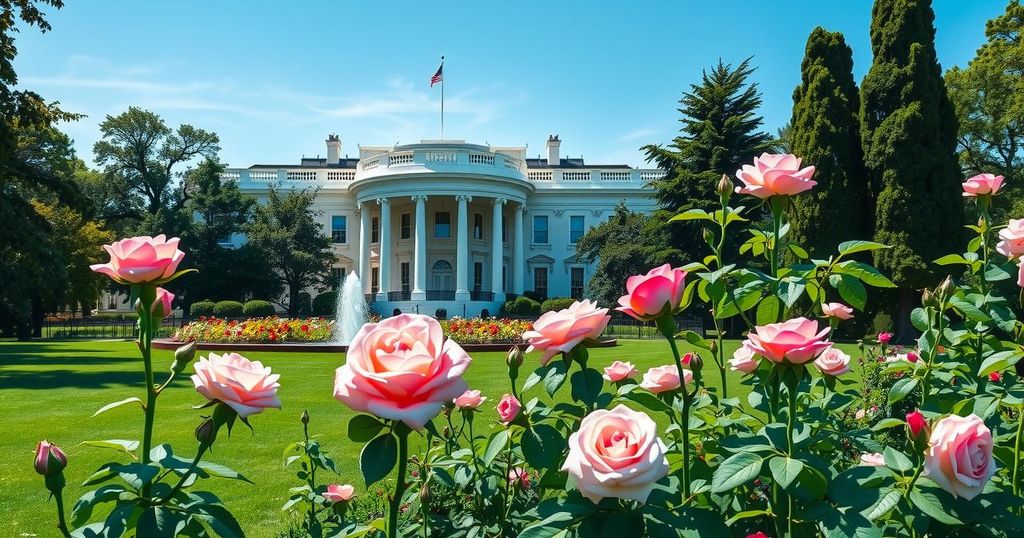Donald Trump to Announce Reciprocal Tariffs: Key Highlights and Implications
US President Donald Trump is set to announce reciprocal tariffs on April 2, referred to as ‘Liberation Day’. The White House has criticized India’s high tariffs, which has increased global suspense regarding this announcement. A 20% tax on imports and additional tariffs on automotive products will be effective immediately, potentially impacting U.S. and international economy significantly.
The anticipation for United States President Donald Trump’s forthcoming announcement regarding reciprocal tariffs has reached a peak. Marked as ‘Liberation Day’, the decision is expected to impact various international trade relationships and will be enforced immediately after announcement. The White House has recently criticized India for its 100% tariff on American agricultural products, indicating a broader concern regarding trade barriers imposed by the European Union, Japan, and Canada.
Reports from credible sources indicate that Trump’s administration is formulating a plan to introduce a 20% tax on a substantial majority of imported goods. It has been suggested that the revenue from this taxation might be utilized for tax refunds or dividends for American citizens, thereby influencing both economic behaviors and consumer sentiment.
The announcement is scheduled to take place in the Rose Garden of the White House, with US Treasury Secretary Scott Bessent confirming a timeframe of 4:00 PM Washington Time on April 2, which equates to 1:30 AM IST. The immediate implementation of these tariffs will require US companies that import goods to comply without delay, potentially impacting their operational costs.
With the proposed new taxes, companies may attempt to mitigate costs either by altering suppliers, seeking assistance from business partners, or increasing prices for American consumers. This scenario poses a heightened risk of recession for the US, as excessive price hikes may lead consumers to curtail their purchases.
The forthcoming tariffs are characterized as charges matching or adjusting to the tariffs other countries impose on American exports. The American government’s tariff strategy will fluctuate according to international responses to the new levies imposed.
As part of the new trade policy, in addition to prior tariffs on aluminum and steel, additional tariffs on automobiles are set to be enacted, further complicating the landscape of international trade as of April 3.
In a related development, Israeli Prime Minister Benjamin Netanyahu has announced a cancellation of all customs duties on US products, following approval from the Knesset Finance Committee. This decision reflects a collaborative approach to enhancing trade relations with the United States.
In Australia, Prime Minister Anthony Albanese affirmed the need to safeguard national interests in light of the impending tariffs, noting that Australia maintains a trade surplus with the US under a free trade agreement. He expressed solidarity against retaliatory measures despite facing pressure during the election campaign.
While the list of countries affected by the tariffs remains uncertain, Trump indicated that they might extend to “all countries”. Preliminary recommendations from the US Trade Representative’s office have highlighted specific nations including India, Canada, China, and various others as being under consideration for these reciprocal tariffs.
In summary, President Trump’s announcement of reciprocal tariffs is creating significant speculation and concern regarding international trade dynamics. The immediate implementation of these tariffs will compel US importers to adapt swiftly. Moreover, as various countries negotiate their positions concerning these tariffs, the global economic landscape may experience substantial shifts, underlining the complexities of trade policy in today’s interconnected world.
Original Source: www.financialexpress.com




Post Comment